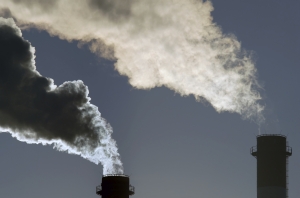MELBOURNE, March 15, 2016 – A new study released by energy and carbon market analysts, RepuTex, indicates that the cost of domestic emissions reductions may not be as expensive as commonly assumed, with Australian companies potentially able to create significant volumes of “low-cost” domestic carbon credits at prices as low as $1-4 – cheaper than prices in most international carbon markets.
While policymakers have commonly assumed that the cost of domestic emissions reductions is expensive – leading to pressure to allow international credits to be used in Australia – RepuTex analysis indicates that there is in fact no shortage of low-cost emissions reductions in Australia.
The RepuTex study modelled the cost and volume of abatement, in the form of Australian Carbon Credit Units (ACCUs), analysing the volume of credits that could be generated over the next 7 years at various price points under a compliance policy – such as the safeguard mechanism – where companies would offset their emissions at least-cost.
Findings indicate that over 300 million credits could be created by local companies over the next 7 years at around $1-4 per credit, while more than 500 million credits could be supplied at under $20. For comparison, the government suggests the abatement required to meet Australia’s 2030 emissions reduction target is 900 million tonnes of carbon dioxide equivalent.
According to RepuTex, the availability of “low cost” credits in Australia could be a game changer for the local market, enabling policymakers to first focus on local – not international – emissions reductions, while still keeping the cost of compliance low for industry.
“The availability of low cost domestic carbon credits debunks the myth that Australian offsets are expensive” said RepuTex Executive Director, Hugh Grossman.
“That is significant, in that it changes the game for how Australian policy might be designed to achieve emissions cuts – local emissions reductions, at low cost, without relying on international offsets”.
“It’s almost the holy grail of climate policy” he said.
RepuTex’s abatement cost curve indicates that more than 500 million Australian carbon credits could be generated at prices under $16 each, using current crediting methodologies across the Agriculture, Land-use, Energy Efficiency, Waste and Industrial sectors.
Critically, the analysis indicates that the large abatement opportunities exist at two clear price levels, with “efficiency and waste” credits, from energy efficiency projects in the Buildings, Industry and Waste sectors potentially generating 300 million credits at between $1-4, while another 200 million credits could be supplied from the Agriculture and Land-use sectors for around $11-16, including activities such as cattle management and savannah burning.
According to RepuTex, the two differing price levels could provide policymakers with flexibility to create a more cost-effective – and targeted – climate policy.
“With such large credit volumes available at two clear price levels, policymakers have flexibility to use different credits for different purposes” said Mr Grossman.
“For example, very low-cost efficiency credits could be accessible to trade exposed industries facing a future liability under the safeguard mechanism, while longer-term land-use projects could continue to be supported by the ERF purchasing”
“Separating how different credits are used could unlock significant volumes of abatement, at very low cost, rather than applying one uniform price for all credits” he said.
Australian carbon credits cheaper than international prices
At $1-4, low-cost credits created under an Australian compliance market would be cheaper than the European emissions trading scheme, where permits are trading at the equivalent of A$7.41 each.
Certified Emissions Reductions (CERs) under the United Nations Clean Development Mechanism (CDM) are currently trading at approximately A$0.60 , however these units are likely to be phased out following the Paris climate conference, with low prices largely reflecting the ‘junk’ status of credits and their uncertain future.
In comparison, regional offsets under the Verified Carbon Standard (VCS), used by Australian companies active in local carbon neutral schemes are currently trading at A$13.65, nearly triple the price of the low cost Australian domestic credits identified in RepuTex’s cost curve.
No more need for international carbon credits in Australia?
According to RepuTex, the availability of low cost domestic credits may ‘buy time’ for policymakers to consider the role of international offsets in the Australian market, with the pressure to import credits mitigated by the availability of low-cost local credits.
Cheap Kyoto offsets, such as CERs, have become a contentious issue within the Coalition, with concern that relying on imported credits would direct Australian capital overseas, rather than support local carbon farming projects, and would put the fate of Australian policy in the hands of international lawmakers, such as the United Nations, or the European Parliament.
Mr Grossman noted that while international credits could still play a role, the lack of urgency to use them could help local policymakers.
“Keeping compliance costs low for industry is critical, however if we can do that by using cheap domestic credits, we may not immediately need international units in Australia,” said Mr Grossman.
“Using low-cost domestic credits could buy time for policymakers to learn by doing before they commit to any international credits, while ensuring Australian investment flows into Australian activities, particularly for carbon farmers”
“It’s potentially a significant win-win for industry, carbon farmers, and the government” he said.
ABOUT REPUTEX
RepuTex is Australia’s largest provider energy and emissions market analysis, with customers at over 150 power, energy, metals, mining, land-use, waste, financials and government agencies.
The company has offices in Melbourne and Hong Kong, supported by a team of analysts with backgrounds in economics, commodities, policy and energy markets. RepuTex was the 2012 winner of the China Light and Power-Australia China Business Award for excellence across Australia-Pacific.
MEDIA CONTACTS:
RepuTex Executive Director, Hugh Grossman, is available for comment. Please contact RepuTex Melbourne on +61 3 9600 0990










